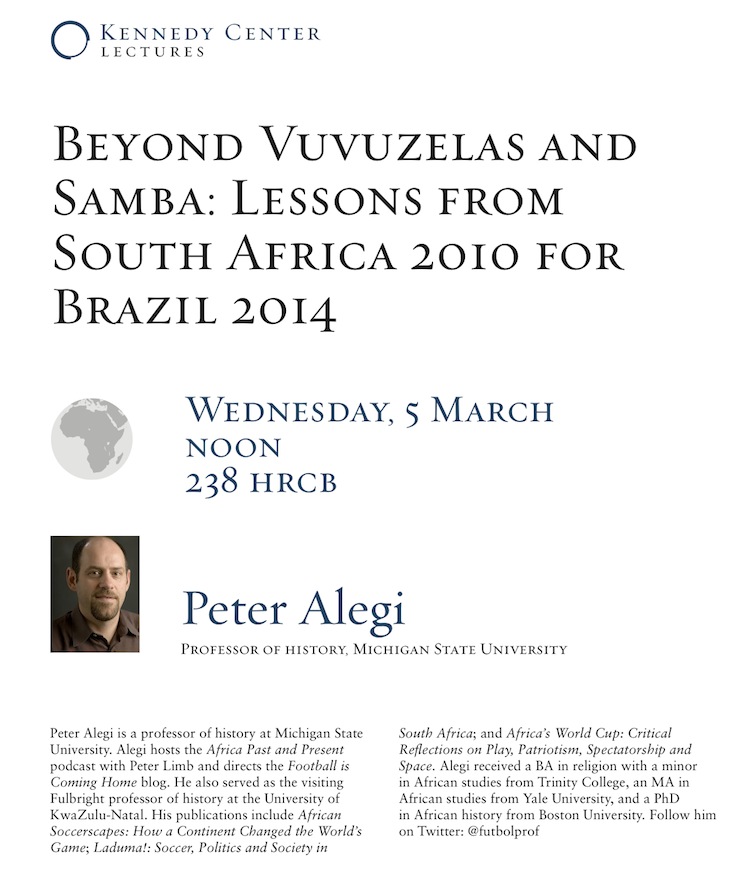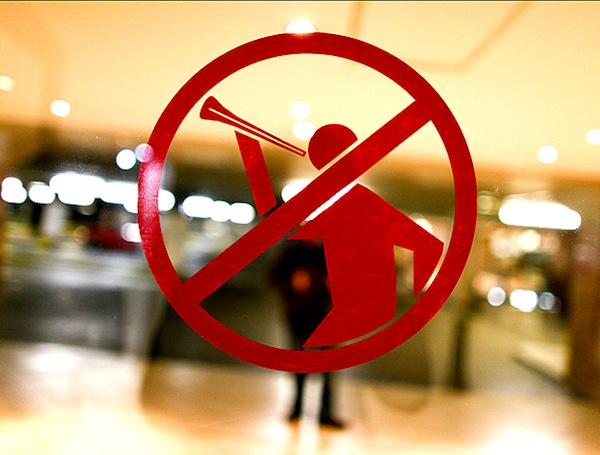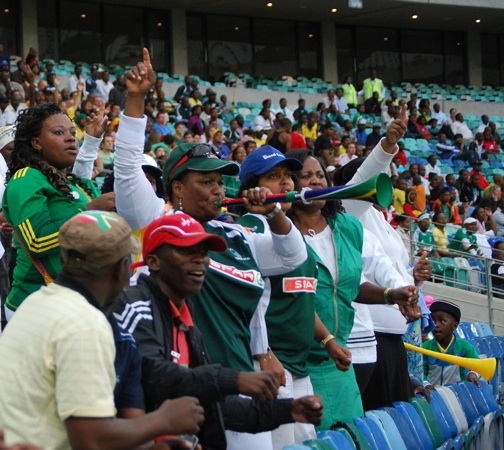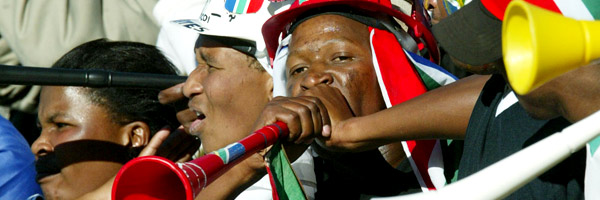 Listen to “Beyond Vuvuzelas and Samba: Lessons from South Africa 2010 for Brazil 2014,” a lecture I delivered at Brigham Young University’s David M. Kennedy Center for International Studies on March 5, 2014.
Listen to “Beyond Vuvuzelas and Samba: Lessons from South Africa 2010 for Brazil 2014,” a lecture I delivered at Brigham Young University’s David M. Kennedy Center for International Studies on March 5, 2014.
The talk analyzes the political, economic, and cultural dynamics of the 2010 FIFA World Cup in South Africa and its similarities to the upcoming 2014 FIFA World Cup in Brazil.
Click here to watch the video.
Tag: Vuvuzelas
Kaizer Chiefs Boss Against Vuvuzelas

Four months ago the vuvuzela was the symbol of South African football and the Africanization of the World Cup. Now the founder and owner of Kaizer Chiefs — Kaizer Motaung — says publicly that he does not like vuvuzelas at matches.
This statement came in the wake of a 500,000 rand fine imposed on Chiefs by the Premier Soccer League after their fans threw two vuvuzelas (and cabbage) onto the pitch during their MTN8 semi-final loss against Orlando Pirates at Soccer City on September 26. PSL prosecutor Zola Majavu said: “It is only my opinion, but if this trend continues we will have to act more strongly.”
“Vuvuzelas take something away from our games,” said Motaung. “To me, vuvuzelas are just a noisy thing people like, but I prefer to watch fans like Bloemfontein Celtic sing and dance and support their team.”
I’ve noticed fewer vuvuzelas at PSL matches recently so perhaps South African fans are beginning to tire of the decibel-blasting plastic horn. A reader’s comment on the sport24 web site may be indicative that the tide is turning: “True Motaung – Vuvuzelas are a noise making gadget that does not contribute to the game. But do not ban it Majavu. Sooner [rather] th[a]n later people will start leaving their Vuvuzelas at home and start singing at the stadiumz.”
Postings on The Sowetan web site were split on the issue. On the one hand, patriotic populists like Popeye ask: “How can you ban vuvuzela? Recently It has been added to Oxford dictionary . . . [It is] Proudly South African. Rich people can not change the world.” On the other hand, nostalgics like Mthondosheshayo agree with Motaung: “vuvuzelas are not adding anything to our soccer. What happened to the singing, dancing and whistling in the stadiums?”
Writing on kickoff.com — the online edition of the country’s leading football magazine — KaMashobana reminded everyone of the “invented tradition” of the vuvuzela: “Ban them or not, the only truth is Vuvuzelas are not part of our culture. One Boer [Afrikaner] who came with the idea of making money decided to use us. Its only a fool who can stand up and say this instrument is our culture. Where was it in 1996?” when Bafana Bafana triumphed in the African Nations Cup.
Other supporters criticized Motaung’s motives for backing a potential ban of the vuvuzela from South African grounds. “Keep your supporters in check instead of wanting to dictate terms to the rest of us,” wrote KebraNagast. “If you hadn’t gotten the fine you probably wouldn’t have said anything.” Other fans pointed to local football’s culture of defiance to suggest that a ban would not work. “Good Luck with that,” stated a user on the sport24 site. “We all know that in this country we have problems with authority, and the more people tell us not to do things, the more we like to do it.”
Ultimately, a voluntary halt to “doing vuvuzela” would be preferable to prohibition in a country where press freedom is under threat by the proposed Media Appeals Tribunal, the Protection of Information Bill, and the intimidation of reporters.
UEFA bans vuvuzelas

UEFA announced that vuvuzelas will not be permitted in European stadia hosting UEFA competitions. ‘The magic of football consists of the two-way exchange of emotions between the pitch and the stands, where the public can transmit a full range of feelings to the players,’ explained the European confederation’s web site. ‘However, UEFA is of the view that the vuvuzelas would completely change the atmosphere, drowning supporter emotions and detracting from the experience of the game.’
Curbing fans’ freedom to express themselves is generally not my cup of tea, but maybe these self-interested football technocrats are helping to preserve what’s left of stadium soundscapes and our hearing.
Click here to read the UEFA statement.
Advertising campaign by Cape Town Tourism.
Vuvuzelas originate in the United States

You’re either a fan of vuvuzelas, the plastic horns that sounds like bees during Confederations Cup games, or you’re not. (Here‘s a qualified defense) Players have complained about the monotonous drone of the vuvuzelas. South Africa has made the horns a part of its 2010 marketing campaign and even invented a history for the cheap horns. The horns can apparently be traced back to the kudu horn “… blown to summon African villagers to meetings.”
This is all nonsense.